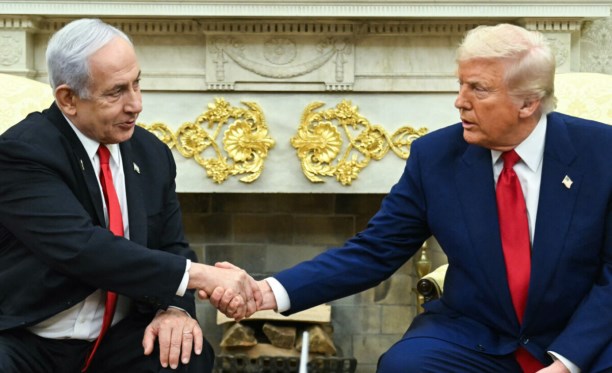In a surprising turn of events, even some members of Donald Trump ‘s team expressed doubt about his decision to release all individuals arrested following the riots at the US Capitol on January 6, 2021.
The unfolding of events revealed a stark contrast between initial beliefs and the eventual outcome, leaving many observers perplexed and questioning the underlying motives behind the sweeping pardons.
Previously, Vice-President JD Vance and Attorney General nominee Pam Bondi had voiced strong opinions against pardoning individuals involved in violence during the Capitol riots.
However, Trump’s subsequent actions diverged significantly from these stances, leading to a notable shift in the narrative surrounding the pardons and raising concerns about the consistency and coherence of the administration’s stance on justice and accountability.
Trump’s swift executive order resulted in the release of numerous rioters, marking a sharp departure from the initial expectations of individual case reviews.
The broad scope of the pardons raised eyebrows and sparked debates among legal experts and political analysts regarding the implications of such sweeping clemency, with many questioning the precedent set by the mass exoneration of individuals involved in acts of violence and insurrection.
Mixed reactions and celebrations
The aftermath of Trump’s pardons saw jubilant scenes outside the Washington DC jail as released individuals and their supporters rejoiced in their newfound freedom.
However, amidst the celebrations, there lingered a sense of unease and discontent among those who viewed the pardons as a controversial and potentially dangerous precedent that could undermine the principles of justice and accountability.
While some praised Trump for his actions, others, including policy experts and legal representatives of the rioters, expressed shock and disapproval at the broad pardons granted.
The diverging viewpoints underscored the divisive nature of the decision and its far-reaching implications for the justice system and the rule of law, highlighting the complex and multifaceted nature of the debate surrounding the intersection of politics and justice in a polarized society.
The implications of Trump’s decision extend beyond the immediate releases, raising questions about the message sent regarding the acceptability of violence for achieving political ends and the potential erosion of trust in the legal system.
As the dust settles, the broader societal impact of these pardons remains unclear, prompting a deeper examination of the intersection between justice, politics, and public perception, and sparking conversations about the long-term ramifications of such controversial executive actions on the fabric of American democracy and governance.
Check also;
- January 6 Rioters Expect Donald Trump Will Keep Pardon Promise
- Biden Hopes Americans Will Understand Son’s Pardon
Please use the button below to contribute to Newslex Point, Inc. using a credit card or via PayPal.

 Newslex Point News in Uganda, Uganda news
Newslex Point News in Uganda, Uganda news











